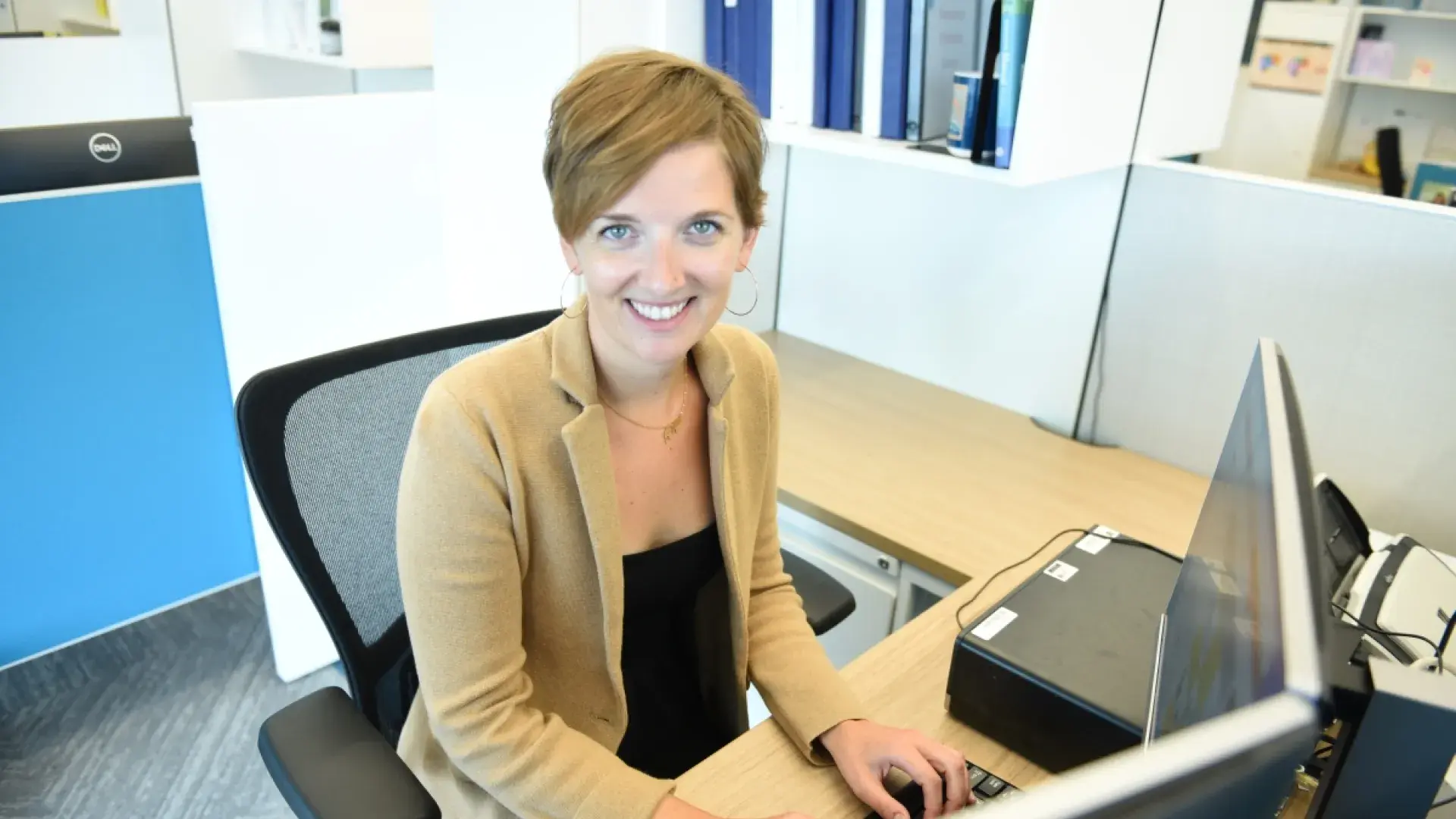
Grant by former CSD Chair Dr. Gregory Lof helps PhD student Kate Radville complete her dissertation
Dr. Gregory Lof vividly remembers scrambling to fund his dissertation research as a PhD student at the University of Wisconsin–Madison in the early 1990s.
“Some of that pain is still memorable,” he recalled. So, after a 20-year career at the IHP, including a decade as chair of the Department of Communication Sciences and Disorders, he decided to create the Gregory L. Lof Dissertation Support Fund to help students in the PhD in Rehabilitation Sciences program, which he helped develop.
“When I retired five years ago, the program was still in its infancy, so I’m very proud of how far the PhD program has come and its accomplishments,” he said.
The yearly award supports the research dissertation expenses of students in the PhD in Rehabilitation Sciences program not covered by other sources as they complete their dissertation, the final step before graduating.
“I’m absolutely thrilled,” said Kate Radville, MS, CCC-SLP, a 2008 graduate of the Institute’s speech-language pathology program and the 2023 recipient of the grant. “It is my absolute honor to receive this recognition and funding,” she said. “This will be crucial in supporting my final year as a doctoral student.”
An adjunct instructor who also works in the Institute’s Speech and Language (SAiL) Literacy Lab, Radville’s research is concentrated on language and literacy, specifically developmental language disorder (DLD). Her dissertation project, “The Effects of Caregiver Education in Developmental Language Disorder,” focuses on the families of children with DLD. There’s little public awareness about DLD, she noted, so she developed an asynchronous, video-based training to teach parents about the condition. In an initial study, asynchronous training was “overwhelmingly preferred” by families as a way of learning about oral language difficulty, she found.
She is working with SAiL director Dr. Tiffany Hogan as part of a team of researchers following kindergarten through second-grade students through a grant from the National Institutes of Health. The ongoing, longitudinal study is focused on reading development in children with DLD. Students with DLD are under-identified, as oral language challenges are less recognized than other learning difficulties like dyslexia, and their presentation changes over time, noted Radville.
For her dissertation study, she hopes to learn about whether the video training is helpful for teaching caregivers about language and language difficulty. Results are expected to support speech-language pathologists’ ability to effectively and efficiently share information with families. Although Lof was not involved in choosing the grant recipient, he and Radville have had a long professional relationship.
One of her first professors at the IHP, Lof later hired her as an adjunct instructor in 2013. “The gift takes on even more significance because of knowing Dr. Lof personally and having him as a professor and mentor and boss,” Radville said.
Lof, who has consistently donated to the Institute since he first joined the faculty in 1997, decided to up the ante in 2017 after he retired. “It was time to give back to the school that was my professional home for so long,” said Lof, who was granted professor emeritus status.
“The Institute will receive legacy funding upon my death, but I wanted to provide money now so I could see how it will help develop the next generation of PhD speech-language pathologists.”
To learn more about how you can make an impact through a gift now or your estate plans later, please contact masheffield [at] mghihp.edu (Meagan Sheffield), executive director of development.
Do you have a story the Office of Strategic Communications should know about? If so, let us know.
